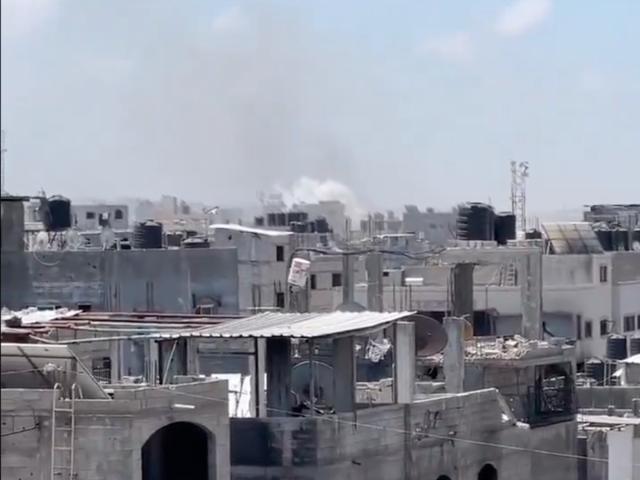The Israeli military's intensified operations in northern Gaza have brought the region's fragile stability into sharp relief, as Hamas shows remarkable resilience in areas previously thought to be secured. This development has prompted critical remarks from U.S. Secretary of State Antony Blinken, highlighting concerns about Israel's strategic direction in the conflict.
Israel maintains that a comprehensive invasion of Rafah—a haven for over a million displaced persons—is crucial to decisively dismantle Hamas. Contrarily, Blinken has voiced doubts about the operation's efficacy, cautioning that it could instead spawn endless insurgency or anarchy, potentially allowing Hamas to regain control.
I believe Sinwar possibly got out from Rafah on the Egyptian border. And that's why the US and Egypt don't want a ground offensive to take place...because that's when you discover the tunnels.
— Fiona Israel (@FionaIsrael1) May 12, 2024
Ignore the reports Sinwar's in Khan Younis. https://t.co/WGkLrgqA4L
Amidst this discourse, there is a growing perception that the U.S. administration's stance may be influenced by domestic electoral considerations, particularly with upcoming Presidential elections where the Muslim vote in states like Michigan and Minnesota could be pivotal. Observations suggest that recent U.S. rhetoric and actions might reflect a strategic recalibration, possibly due to political pressures rather than a shift in the fundamental policy towards Israel's right to defend itself.
Biden six months ago: “Hamas must be eliminated entirely” 👇
— Dr. Eli David (@DrEliDavid) May 5, 2024
Biden today: “Israel must not enter Rafah to eliminate Hamas”
What changed? Pressure from pro-Hamas voters in Michigan? pic.twitter.com/nAUz2mc2yU
Despite Israel's significant efforts to cleanse areas like Khan Younis of Hamas, Blinken noted that the group continues to reestablish itself, challenging the notion of a lasting military victory. This persistence is complicated by earlier pressures from the U.S. for Israel to scale back operations, which may have inadvertently facilitated Hamas's resurgence. The U.S. has also raised concerns about potential violations of international humanitarian law by Israel, although definitive evidence remains unconfirmed.
In his remarks, Secretary Blinken also highlighted the tragic human cost, using a civilian death count in Gaza exceeding 35,000 despite the United Nations walking back that number and showing close to 14,000 women, children and elderly deaths.
🚨 UN Scandal: Data on Gaza Casualties Falsified.
— Shirion Collective (@ShirionOrg) May 12, 2024
“The U.N. lied to everyone to boost Palestinian support”.
⚠️ New @UN data reveals a significant discrepancy in reported deaths, with a stark reduction in the number of women and children identified among the casualties.… pic.twitter.com/oEc10x1ysG
Blinken's advice for Israel to articulate a viable post-war strategy for Gaza underscores the deepening divide between Israel and its key ally, as cease-fire negotiations falter and the U.S. hints at withholding military support if Israel advances into Rafah. This rift highlights the complexities of formulating a post-conflict strategy while Hamas remains active. British Foreign Secretary David Cameron echoed this thought yesterday, saying that a post-conflict strategy cannot be implemented while Hamas is still running Gaza.
The humanitarian crisis in Gaza intensifies, with significant displacement and closures at key border crossings exacerbating the plight of civilians. Despite Israel reopening some crossings and coordinating new access points, the distribution of aid is severely restricted. The situation has reached such severity that the World Food Programme has flagged the risk of famine in northern Gaza.
Massive IDF strike in Jabalia, northern Gaza.
— Open Source Intel (@Osint613) May 13, 2024
I have no idea why these civilians haven’t evacuated yet. pic.twitter.com/uOXjhwzMLO
Despite these dire circumstances, Hamas's resolve does not appear diminished. The IDF's recent offensives around Jabalia camp, driven by intelligence of Hamas rebuilding efforts, confirm the ongoing fierce clashes reported by Hamas's military wing in various regions.
These developments emphasize the complexity and ferocity of the conflict, with Israeli forces delving deeper into Gaza amid close international scrutiny and a worsening humanitarian crisis.


